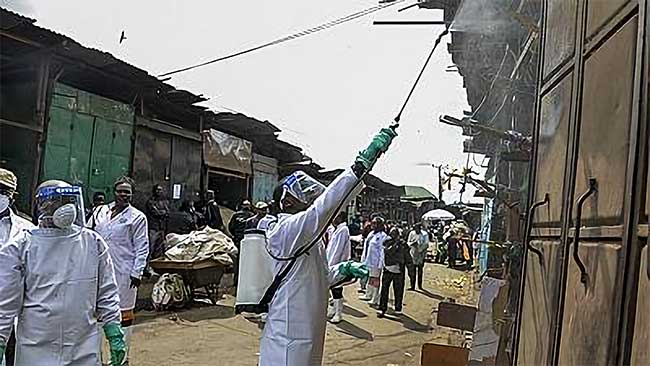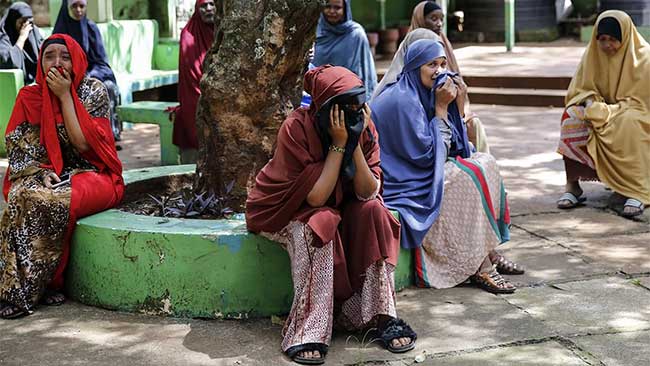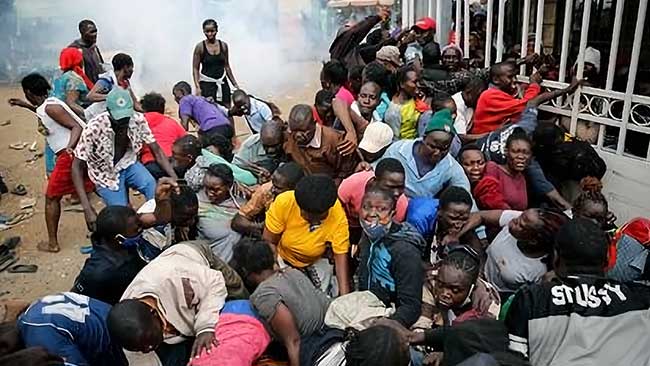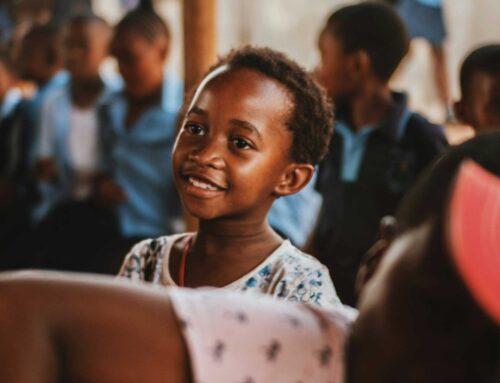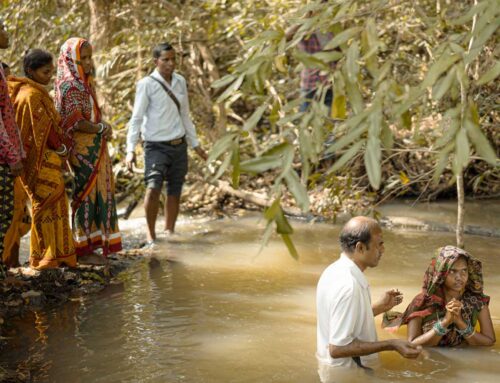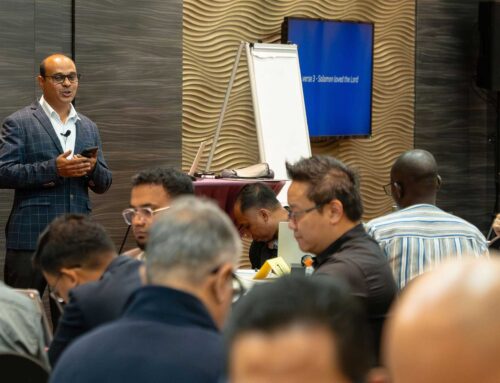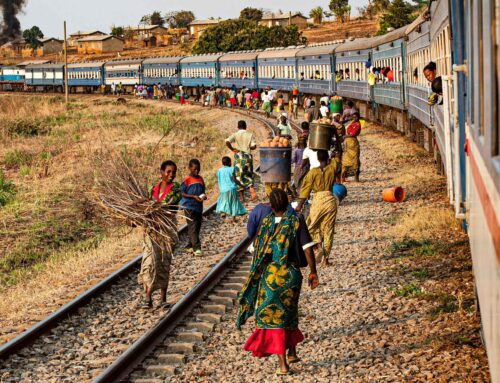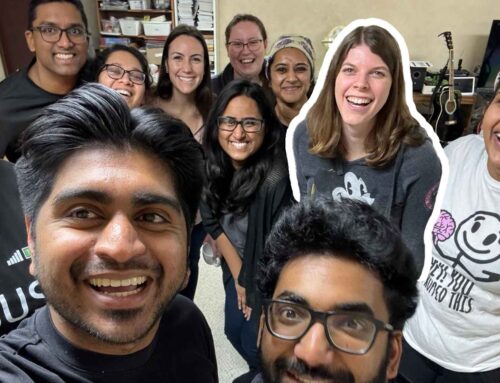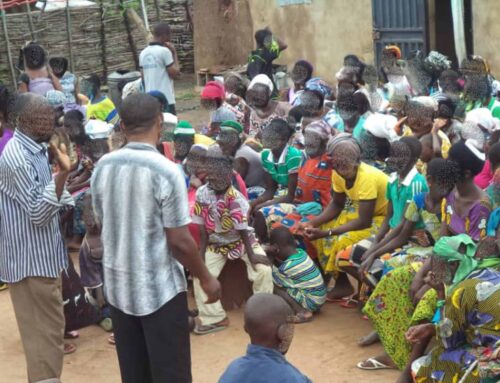Gospel Hope for Hurting Children
“Let the little children come to me, and do not hinder them, for the kingdom of heaven belongs to such as these.”
This moment is just one of the many in scripture where God implores his followers to make room for the vulnerable. Whether those under the “yoke of oppression” in Isaiah, Chapter 58 or the “orphans and widows” in James, Chapter 1, the message is clear — believers are called to care for the vulnerable, the dependent, and the forsaken.
There are perhaps none more vulnerable than children experiencing abuse or trauma, and Caroline Oyugi, a Haggai leader in Kenya, has dedicated her life to caring for them.
Caroline is a children’s counselor, and her job is to relate to the pain of children who are suffering the effects of neglect, abuse and trauma, and try to mitigate their suffering. Child abuse is not a sin unique to any one country or people group, but a scourge and tragedy in every culture. And it is often exacerbated by environmental challenges such as economic distress and health crises.
“As with many crises that we find ourselves thrust in, children are usually the mute victims.”
In recent months, the children Caroline works with are navigating closure of schools due to COVID-19 and separation from friends and family caused by social distancing. For children vulnerable to abuse, the isolation of quarantine is especially dangerous. Without the safeguards of school, church, and interaction with other adults, children in abusive homes face heightened danger.
Caroline shares that children are being exposed to domestic violence as parents fight more frequently under the economic stresses of the day. In addition, Caroline shares that children facing sexual abuse often experience it in the home, and in quarantine there is no escape.
But Caroline’s hope in the Gospel allows her to enter into these difficult situations and to help.
“My role has been first to hear the story from the child’s perspective. In ‘normal’ times, this would have been face-to-face for at least three sessions. Now, it tends to be an initial very lengthy session followed up via text message or a letter. We also pray together.”
Haggai leaders are tasked with bringing the message and hope of the Gospel into their communities, and Caroline has the unique ability to bring this hope to hurting children and families.
“It can be an exhausting process, often heart-breaking, but it’s fulfilling in the sense that it helps bring understanding, reconciliation, and faith in God and hope to the bleakest situations.”
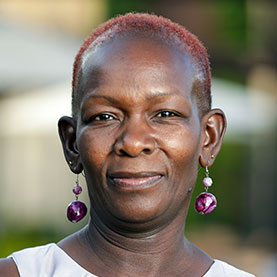
Dr. Caroline A. Oyugi
Haggai International Regional Representative – Eastern Africa region
Gospel Hope for Hurting Children
“Let the little children come to me, and do not hinder them, for the kingdom of heaven belongs to such as these.”
This moment is just one of the many in scripture where God implores his followers to make room for the vulnerable. Whether those under the “yoke of oppression” in Isaiah, Chapter 58 or the “orphans and widows” in James, Chapter 1, the message is clear — believers are called to care for the vulnerable, the dependent, and the forsaken.
There are perhaps none more vulnerable than children experiencing abuse or trauma, and Caroline Oyugi, a Haggai leader in Kenya, has dedicated her life to caring for them.
Caroline is a children’s counselor, and her job is to relate to the pain of children who are suffering the effects of neglect, abuse and trauma, and try to mitigate their suffering. Child abuse is not a sin unique to any one country or people group, but a scourge and tragedy in every culture. And it is often exacerbated by environmental challenges such as economic distress and health crises.
“As with many crises that we find ourselves thrust in, children are usually the mute victims.”
In recent months, the children Caroline works with are navigating closure of schools due to COVID-19 and separation from friends and family caused by social distancing. For children vulnerable to abuse, the isolation of quarantine is especially dangerous. Without the safeguards of school, church, and interaction with other adults, children in abusive homes face heightened danger.
Caroline shares that children are being exposed to domestic violence as parents fight more frequently under the economic stresses of the day. In addition, Caroline shares that children facing sexual abuse often experience it in the home, and in quarantine there is no escape.
But Caroline’s hope in the Gospel allows her to enter into these difficult situations and to help.
“My role has been first to hear the story from the child’s perspective. In ‘normal’ times, this would have been face-to-face for at least three sessions. Now, it tends to be an initial very lengthy session followed up via text message or a letter. We also pray together.”
Haggai leaders are tasked with bringing the message and hope of the Gospel into their communities, and Caroline has the unique ability to bring this hope to hurting children and families.
“It can be an exhausting process, often heart-breaking, but it’s fulfilling in the sense that it helps bring understanding, reconciliation, and faith in God and hope to the bleakest situations.”

Dr. Caroline A. Oyugi
Haggai International Regional Representative – Eastern Africa region
Gospel Hope for Hurting Children
“Let the little children come to me, and do not hinder them, for the kingdom of heaven belongs to such as these.”
This moment is just one of the many in scripture where God implores his followers to make room for the vulnerable. Whether those under the “yoke of oppression” in Isaiah, Chapter 58 or the “orphans and widows” in James, Chapter 1, the message is clear — believers are called to care for the vulnerable, the dependent, and the forsaken.
There are perhaps none more vulnerable than children experiencing abuse or trauma, and Caroline Oyugi, a Haggai leader in Kenya, has dedicated her life to caring for them.
Caroline is a children’s counselor, and her job is to relate to the pain of children who are suffering the effects of neglect, abuse and trauma, and try to mitigate their suffering. Child abuse is not a sin unique to any one country or people group, but a scourge and tragedy in every culture. And it is often exacerbated by environmental challenges such as economic distress and health crises.
“As with many crises that we find ourselves thrust in, children are usually the mute victims.”
In recent months, the children Caroline works with are navigating closure of schools due to COVID-19 and separation from friends and family caused by social distancing. For children vulnerable to abuse, the isolation of quarantine is especially dangerous. Without the safeguards of school, church, and interaction with other adults, children in abusive homes face heightened danger.
Caroline shares that children are being exposed to domestic violence as parents fight more frequently under the economic stresses of the day. In addition, Caroline shares that children facing sexual abuse often experience it in the home, and in quarantine there is no escape.
But Caroline’s hope in the Gospel allows her to enter into these difficult situations and to help.
“My role has been first to hear the story from the child’s perspective. In ‘normal’ times, this would have been face-to-face for at least three sessions. Now, it tends to be an initial very lengthy session followed up via text message or a letter. We also pray together.”
Haggai leaders are tasked with bringing the message and hope of the Gospel into their communities, and Caroline has the unique ability to bring this hope to hurting children and families.
“It can be an exhausting process, often heart-breaking, but it’s fulfilling in the sense that it helps bring understanding, reconciliation, and faith in God and hope to the bleakest situations.”

Dr. Caroline A. Oyugi
Haggai International Regional Representative – Eastern Africa region


